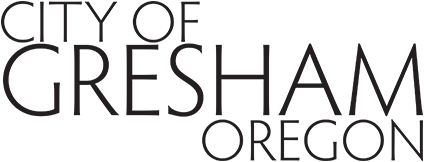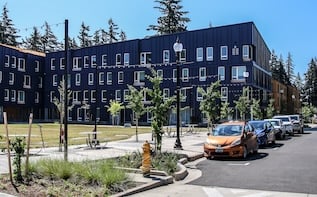- Home
- Urban Design and Planning
- Planning Projects
- Housing Production Strategy
Housing Production Strategy
The Housing Production Strategy was adopted by Council in 2023. The Strategy is part of the City's overall housing efforts. It is a six-year plan to address Gresham’s unmet housing needs. The Strategy focuses on housing equity and includes tools, policies and actions measures.
Learn more, read the Housing Production Strategy.
Project information
- Project Schedule
- Project Background
- Project Documents
- Contact
Project schedule
- Winter 2022: Project kick-off.
- Spring/Summer 2022: Gathering data and feedback.
- Summer/Fall 2022: Strategies to meet future housing needs.
- Fall/Winter 2022: Draft Housing Production Strategy report.
- Spring/Summer 2023: Housing Production Strategy was adopted by City Council.
There is a housing crisis. Not just in Oregon, but nationwide.
To address this, the Oregon State legislature passed House Bill 2003 in 2019 to help local communities meet the diverse housing needs of Oregonians. The law requires Gresham to study future housing needs of its residents and develop strategies to encourage production of needed housing.
- The bill requires Gresham to analyze what housing is needed every six years for both current and future residents (Housing Capacity Analysis).
- The bill then requires every city to adopt a Housing Production Strategy (HPS). The strategy includes specific tools, actions and policies to promote the development of all identified housing needs – such as revising regulations or providing financial incentives.
The HPS overlaps with the City's housing priorities in Gresham's Strategic Plan. And it directly relates to the Council’s Diversity, Equity, and Inclusion project.
Public involvement efforts
- Interviews and focus groups with:
- Housing developers: people who design or build housing or land developers.
- Housing consumers: owners and renters; also including property managers.
- Housing service providers: organizations that run shelters or provide transitional, supportive, affordable, cooperative or special housing.
- Public open houses
- Project advisory group meetings
- Planning Commission work sessions and hearings
- Council round table meetings and hearings
Why this work is important
Gresham will need more than 6,000 new dwelling units in the next 20 years and a wider variety of housing types than is currently being built.
Based on census estimates, about 44% of Gresham’s households are paying more than 30% of their income on rent (cost burdened) and 21% are paying more than 50% (severely cost burdened).
- These percentages are higher in Gresham than elsewhere in Multnomah County.
- The cost burden of Gresham residents varies by ownership status.
- About 64% of Gresham renters are cost burdened, and about 28% of Gresham homeowners are cost burdened.
Cost burden also varies by race and ethnicity. In the Portland metro region, the percentage of households paying more than 30% of their income in rent are:
- American Indian or Alaska Native: 54%
- Asian: 39%
- Black or African American: 53%
- Native Hawaiian and Pacific Islander: 25%
- White: 46%
- Hispanic or Latino (of all races): 57%
Housing production strategy
The second phase in the City's planning is to support a variety of housing options. It includes the housing production needed to provide fair and equitable housing for all.
- Phase 1: What Gresham has and needs: Housing capacity analysis, completed October 2021.
- Phase 2: Strategies to get us there: Housing Production Strategy, beginning winter 2022.
- Phase 3: Implementation, expected 2023.
Related links
2022
- July 25 Planning Commission introductory work session
- Aug. 9 Neighborhood Coalition
- Sept. 6 Council Work Session
- Dec. 6 Council Work Session
2023
- Feb. 27 Planning Commission Work Session
- Apr. 10 Planning Commission hearing on proposed Comprehensive Plan amendments
- June 6 City Council hearings
- Proposed Comprehensive Plan amendments
- Adopted Housing Production Strategy
Terra Wilcoxson, Comprehensive Planning Manager
Terra.Wilcoxson@GreshamOregon.gov
503-618-2804





